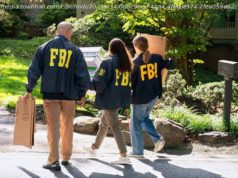In testifying about her alleged sexual assault, she used her expertise as a psychologist who understands trauma.
“How are you so sure that it was he?”
Ever since Christine Blasey Ford, a 51-year-old psychology professor, alleged she was sexually assaulted by Brett Kavanaugh more than 30 years ago, people have, again and again, questioned how she could be sure of her memory. And today, she finally got to explain—with the precision of a scientist, with the authority of a professor. Because that is who she is.
That question early on from Senator Dianne Feinstein—“How are you so sure it was he?”—was one she must have been anticipating.“The same way I’m sure I’m talking to you right now. Basic memory functions,” Ford answered, and then she explained how neurotransmitters such as norepinephrine and epinephrine affect memory. “The trauma-related experience is locked there, whereas other details kind of drift,” she concluded in her answer.
This is indeed how memory of a traumatic experience works. Memory does not function like a videotape. A victim will zero in on certain details. “The emotion is so strong that the fragments can become untethered from time and place,” as The New York Times reports. “They may persist in memory even as other relevant details—the exact date, the conversation just before the attack, who else was in the room—fall out of reach.”
The Kavanaugh-Ford hearing is about the tyranny of male power.
The details that fell out of reach in Ford’s case included the exact year of the assault and the exact location—all of which have been seized upon to discredit her memory. But the other details she recalled in her testimony were incredibly vivid: Kavanaugh’s hand on her mouth, the music drowning out her calls for help. When Senator Patrick Leahy asked her about the strongest memory she had from the incident, she said it was the laughter: “Indelible in the hippocampus is the laughter.” The hippocampus is the area of the brain where new memories are formed. The stronger the emotion at the time, the more vivid the memory.
As Feinstein very deliberately pointed out in her introduction, Ford is a professor affiliated with Palo Alto University and Stanford University. She holds master’s degrees from Stanford and Pepperdine University and a Ph. D. from the University of Southern California. While at USC, according to the Times, she developed a test for children coping with trauma. There’s no way she could have known, but she had been preparing for this hearing for decades.
The Republicans on the Senate Judiciary Committee chose to cede their time and questions to a sex-crimes prosecutor named Rachel Mitchell. Mitchell asked Ford to go over in exacting detail her letter to Feinstein and her text messages to a Washington Post reporter. She questioned whether Ford’s anxiety and PTSD were caused by something else.
“I think that’s a great question,” Ford said, much like a professor answering a student in class.“The etiology of anxiety and PTSD is multifactorial.” She proceeded to explain the risk factors and biological predisposition of the disorders.
Over and over, she answered questions from Democratic senators and from Mitchell by appealing to her own authority as a scientist. She talked about the “fight or flight” she experienced after the assault. She answered a question about how she has been affected by acknowledging that “the sequelae of sexual assault varies by person.”
It was unusual for the Republicans to bring in a prosecutor to ask questions on their behalf. Democrats criticized it, saying the setup gave the appearance of putting Ford on trial. If the proceedings did indeed look like a trial, Ford seemed like her own expert witness.






